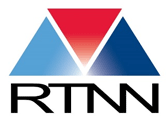
At the most recent NNCI seminar, RTNN’s David Berube joined Arizona State’s Andrew Maynard to discuss nanotechnology in society over the past twenty years. Their engaging discussion covered a range of topics.
Abstract: In a major address at Caltech in 2000, President Bill Clinton unveiled the National Nanotechnology Initiative and proposed doubling the federal funding for nanoscale research in the United States. President Clinton gave the speech in front of a map of the Western hemisphere created out of gold atoms. Looking back at it he joked: ”I think you will find more enduring uses of nanotechnology.” Since that day the federal government has poured billions of dollars into nanoscale R&D and scientists and engineers have indeed found more enduring uses. Questions, concerns, and excitement about the social aspects and implications of nanotechnology have accompanied this effort every step of the way. This panel brings together two scholars who have played important roles in exploring nano in society over the past twenty years. They will reflect on the changes in the way that scholars, governments, corporations, and the general public engage with nanotechnology over the last two decades.
Watch the conversation:



